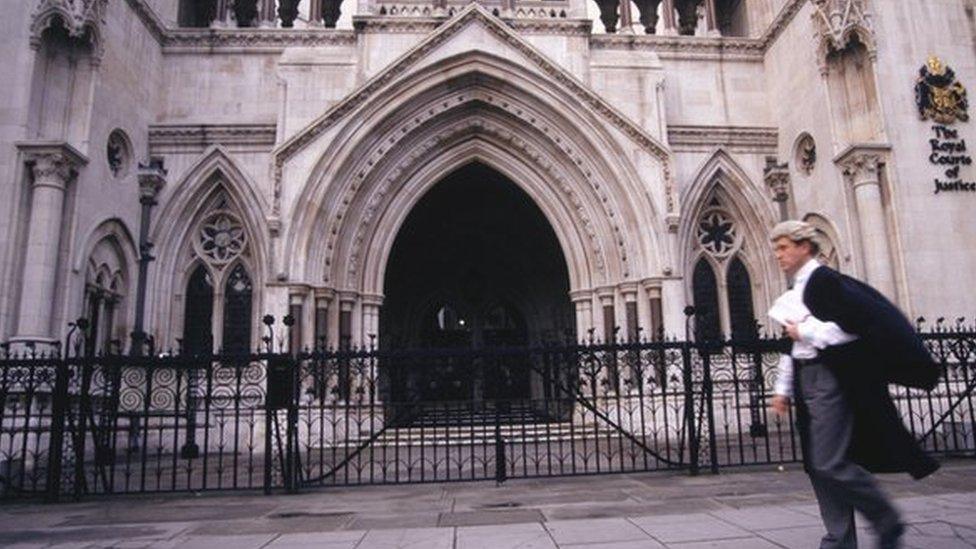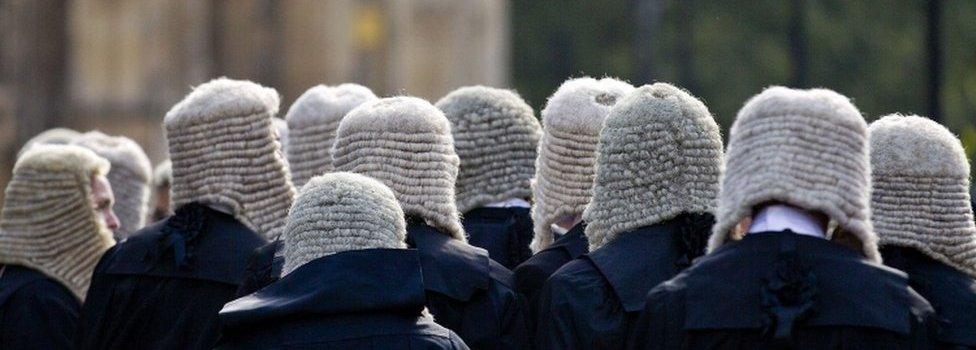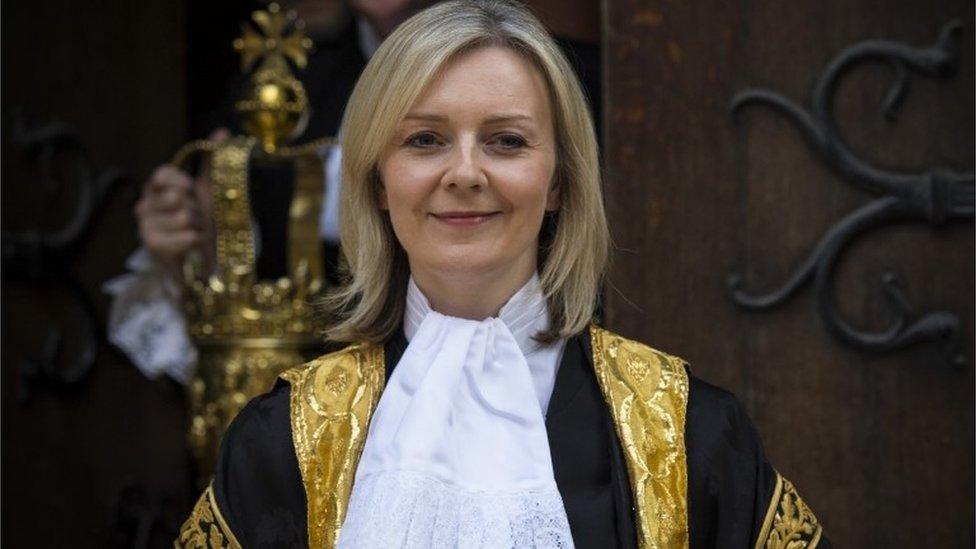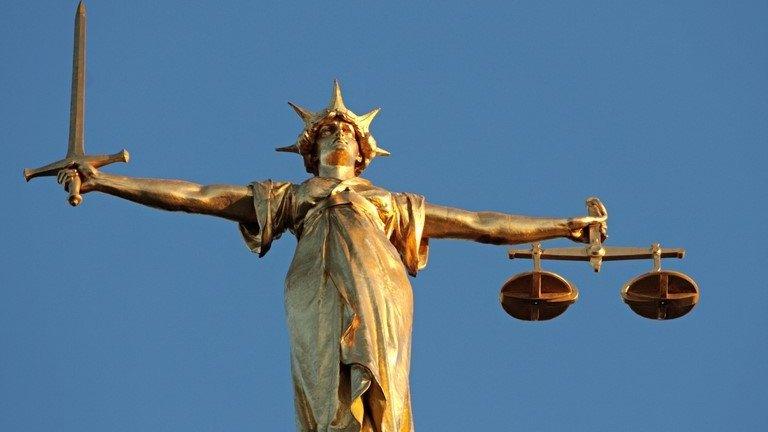Vulnerable witnesses to be spared court
- Published

Vulnerable victims and witnesses will be able to give their evidence before a trial starts, as part of planned court reforms in England and Wales.
Cross-examinations would be recorded in advance and then played in court, sparing vulnerable people the stress of reliving traumatic events in open court, the Ministry of Justice said.
The move follows three pilot schemes, mostly involving sex offence cases.
Other plans include allowing online guilty pleas for some minor offences.
Justice Secretary Elizabeth Truss, who is launching a joint paper setting out a series of reforms, said children in particular would benefit from giving evidence pre-trial.
'Better witness recall'
The Ministry of Justice said the pilot schemes - run in Liverpool, Leeds and Kingston-upon-Thames Crown Courts - had shown that victims felt less pressure with "pre-trial evidence sessions" and witnesses were better able to recall events.
Almost three-quarters of the cases in the pilot programmes involved sexual offences.
Currently, cross-examination of witnesses can take place in court only during the trial, although there are provisions to allow vulnerable people to give evidence from behind a screen or via video link.
Sometimes, the prosecution uses a recorded police interview with the victim to reduce the time the individual must spend in court repeating the same account.
Judges can stop overly-aggressive cross-examination of witnesses, but there are no limits on the duration of questioning or the number of lawyers who can question a witness or victim.

Analysis

Legal jargon is set to be replaced by simple language under the reforms
BBC legal correspondent Clive Coleman
Make no mistake about it, today's paper marks a major shift in the way we do crown court criminal trials.
For centuries, victims and witnesses have had to physically attend court for the trial and face cross-examination in front of a jury.
From the end of 2017 in England and Wales, the young and vulnerable will be able to have their evidence pre-recorded in front of a judge and only later played to the jury during the trial itself.
This represents the latest and most dramatic in a series of what are known as "special measures" brought in to protect the vulnerable.
They include giving evidence from behind a screen, or by video link, and having access to a registered intermediary.
The latest measure comes as innovative work is being done in the way the young and vulnerable are questioned.
Barristers can be asked to submit their cross-examination in writing to the judge in advance, to avoid pronouns which might confuse, and not to put their case directly to a witness who simply won't understand it.

'Swifter justice'
The new measure was announced as part of a series of £1bn reforms outlined by Ms Truss along with the senior president of tribunals, Sir Ernest Ryder, and Lord Chief Justice, Lord Thomas of Cwmgiedd.
Other reforms in their paper, "Transforming Our Justice System", include:
Legal jargon to be replaced by simple language
Defendants will be able to go online to plead guilty to some minor offences and pay fines
Plans to scrap paper forms and "go digital" in every court and tribunal in England and Wales
The Ministry of Justice said more than 12 million pages of evidence had already been put online and video link systems had been installed in 130 crown courts.
Ms Truss said: "We want a justice system that works for everyone. That means creating a system that is just, efficient and simple."
- Published11 September 2016

- Published21 July 2016

- Published19 January 2015
.jpg)
- Published28 April 2014
